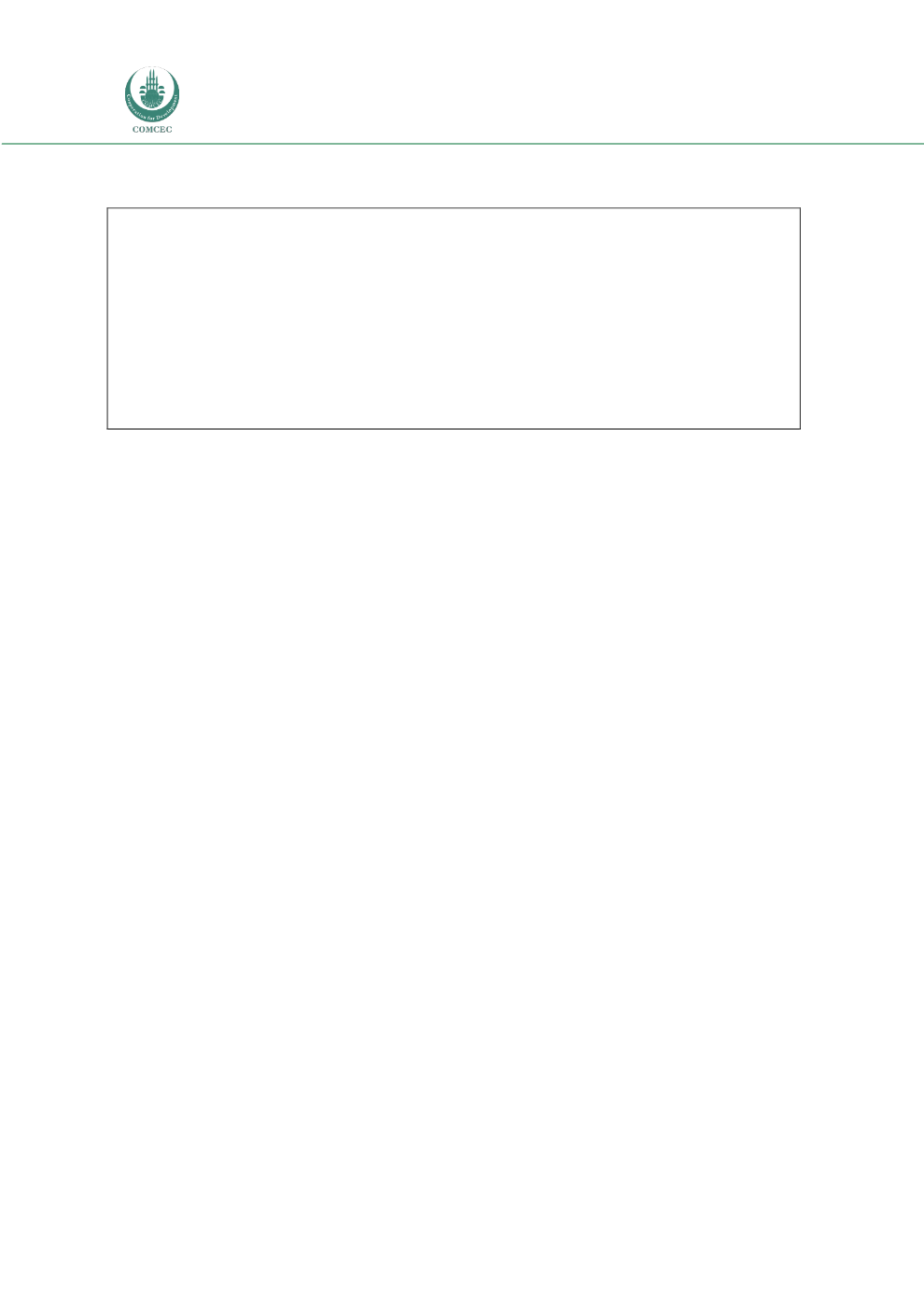

Retail Payment Systems
In the OIC Member Countries
58
4.3 Ivory Coast (Cote d’Ivoire)
Highlights:
•
Ivory Coast plays a key role in transit trade for neighbouring, landlocked countries. The
country is the largest economy in the West African Economic and Monetary Union,
constituting 40% of the monetary union’s total GDP.
•
The Ivorian market has a developing payments infrastructure. Mobile money regulations
are available and enabling MNOs to participate. At least two mobile payment initiatives
have been launched: Jumia and MTN.
•
There are numerous cross-border remittance systems as part of the strategy to increase
financial inclusion through the use of mobile technologies and to reduce the cost of
transferring money between countries.
Introduction
In general, financial sectors on the African continent remain largely underdeveloped, while
banking industries continue to dominate the landscape in terms of total assets and services.
However, Africa enjoys certain key advantages that will enable the continent to equal or even
surpass at least some of its emerging market counterparts in terms of financial sector
development in the coming decade and beyond. Most African financial markets are more open
to new entrants including foreign players than other emerging market economies. The growing
presence of subsidiaries of major global banks on the continent has undoubtedly improved the
quality of financial services in recent years; the focus here has largely, but not exclusively, been
on high margin corporate businesses as opposed to the retail banking sector.
Cote d’Ivoire (hereafter, Ivory Coast) has a population of approximately 21 million and an
approximate GDP growth rate of 2.3% in 2008 and 3.2% in 2009. GDP per capita is estimated
to be US$1,700. The Ivory Coast economy has historically been highly dependent on the
production and export of tropical products. It is the world’s largest producer of cocoa beans
and a significant exporter of coffee and palm oil. Since 2007 oil and gas production have grown
in relative importance. Dependence on agricultural exports has exposed the economy to
swings in commodity prices.
According to the IFC (2012), there are 23 commercial banks operating in Ivory Coast, along
with 72 microfinance banks and 3 payment service providers. By June 2012, there were
880,000 debit cards issued with a volume of transactions of 270,000 per year, accounting for
about $39 million.

















